- Home
- Types of Addiction
- Valium Addiction Help & Treatment
Valium Addiction Help & Treatment
Valium, or diazepam, is available through doctors as well as illegally in the UK.
It’s a highly addictive substance with serious health effects. In 2019, there were 243 diazepam-related deaths in England and Wales.
For people taking valium, whether recreationally or through a prescription, it’s important to understand its consequences on your mental and physical health.
For those worried about their use, diazepam addiction help and treatment is available.
What Is Valium?

Valium is a brand name for diazepam, a brand that is no longer widely available in the UK.
Diazepam is a class C drug known as benzodiazepine.
People can be prescribed diazepam through the NHS, mostly to treat anxiety, panic attacks or sleeping disorders.
You may have heard of Xanax, which is another type of benzodiazepine.
Xanax isn’t available under this brand name in the UK, however alprazolam (the type of benzodiazepine Xanax is) is available via a private prescription.
It is not available on the NHS.
Valium or diazepam is a sedative that causes the brain to secrete the amino acid, GABA.
It helps regulate central nervous functioning. Valium stimulates more GABA to be released in the brain, meaning the person relaxes and might even experience euphoria.
People who have anxiety are unable to produce the necessary amount of GABA to self-regulate and calm down.
The diazepam kick starts this.
Street Valium
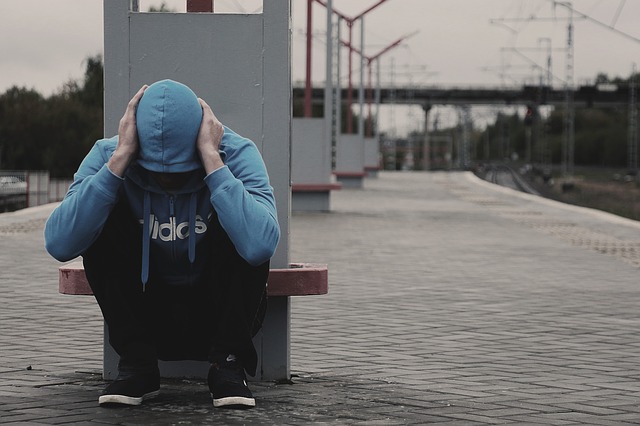
In recent years, “street valium” has been created, which is a type of new psychoactive substance.
These are illegal and contain NPS benzodiazepines, such as etizolam.
They’ve become increasingly popular and people tend to use them in conjunction with other drugs.
People might buy them under the impression that they’re genuine benzodiazepines.
They’re usually sold as blue pills and might even be sold in packaging that looks like genuine medicinal packets you’d receive from a pharmacist.
Valium is also known as:
- Vs
- Vallies
- Blue Vs
- Benzos
- Moggies
- Roofies
What Is Valium/Diazepam Prescribed For?
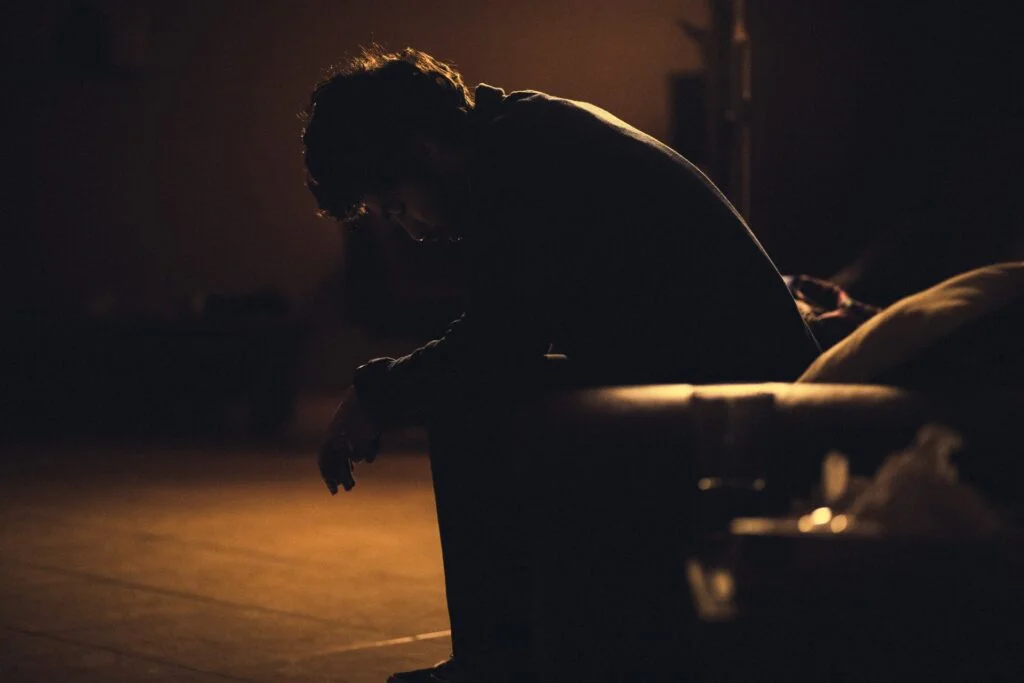
In the UK, doctors prescribe diazepam for the following:
- Anxiety
- Depression
- Sleep disorders
- Restless leg syndrome
- Seizures
- Muscle spasms
- Alcohol withdrawal
Legal forms of diazepam are available as an emulsion for injection, oral suspension, rectal suspension, or in pill form (2, 5, or 10 mg).
Even when it’s prescribed by a doctor, diazepam addiction is possible, especially if a person has been taking it for 4-6 weeks.
Side Effects Of Valium
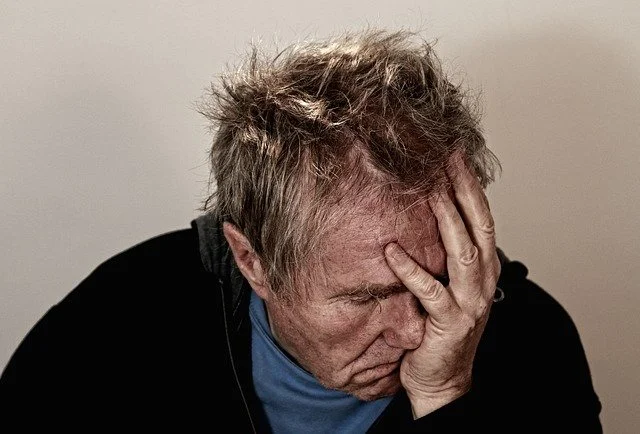
The most common immediate side-effects of valium/diazepam abuse include:
- Dilated pupils
- Dry mouth
- Slurred speech
- Slow reflexes
- Muscle weakness
- Frequent urination
- Nausea
- Fatigue
- Lack of focus/concentration
- Memory problems
- Constipation
- Cravings
- Tremors
- Hypersensitivity
- Paranoia
Long-Term Health Risks Of Valium Use
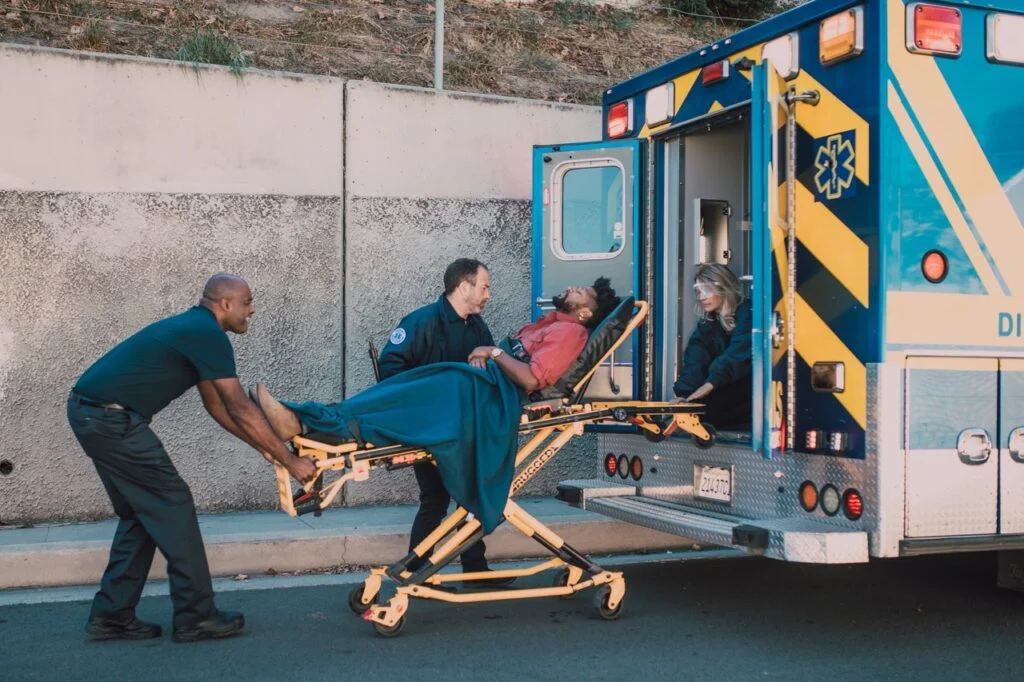
As well as the immediate side-effect, valium abuse risks inflicting several long-term effects.
These include:
- Impaired memory
- Dementia
- Heart problems
- Depression
- Suicidal thoughts and behaviours
Valium Dependency

People who use Valium or diazepam can develop a physical dependency on it.
This is because it changes how GABA (an amino acid) is regulated in the brain.
When the Valium starts to leave the body, the brain and body start to react to this because the brain was previously relying on the drug for balancing the GABA and regulating the central nervous system.
This is what causes physical withdrawal symptoms. For the person addicted to Valium, this can be particularly dangerous.
Withdrawal Symptoms From Valium/Diazepam
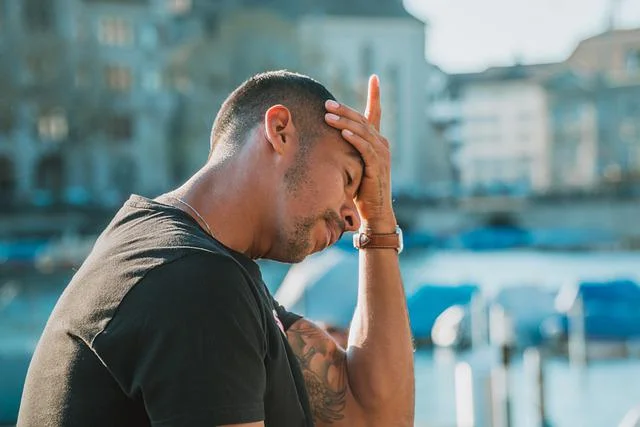
Sadly, the way Valium works, users get to a point where they need to take it to feel normal.
The brain comes to rely on it- without the substance, it starts to malfunction.
Withdrawal symptoms include:
- Headaches
- Abdominal pain
- Muscle spasms
- Slurred speech
- Tingling fingers and toes
- Mood swings
- Depression
- Anxiety
Some professionals argue that Valium is more addictive than heroin because of how long it can take to stop experiencing withdrawal symptoms (more on this later).
Poly-Substance Use With Valium/Diazepam
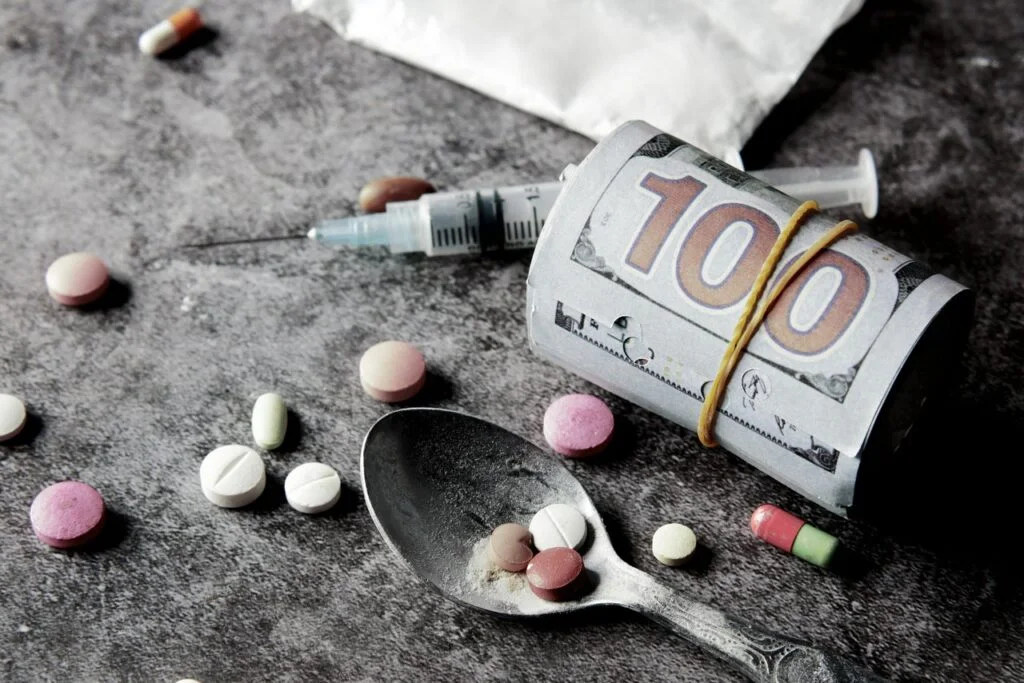
Valium depresses the central nervous system.
It’s incredibly dangerous to combine with other substances that also suppress the central nervous system, such as opiates and alcohol.
Due to the various strains that ketamine and cocaine put on the bodily systems and organs, it is also extremely dangerous to mix with these.
Unfortunately, the dangers of polysubstance use doesn’t stop people from using more than one substance.
Some obvious people to think about who have died due to polysubstance overdose are Elvis Presley, Jimi Hendrix, and Heath Ledger.
Addiction really does affect people from all walks of life.
If Someone You Love Has Valium Addiction

Loving someone with a Valium addiction can be really difficult.
Watching the drug destroy their mind and body is heartbreaking and can make them feel completely helpless.
It’s really important to be approachable if your loved one has an addiction.
Being able to talk openly and honestly about the addiction and the drug can make a huge difference in your loved one’s recovery journey.
It’s also really useful to research treatment options for the moment your loved one might be ready to open up and talk about this.
The CRAFT Intervention

If you’re keen to do something that can help you, your loved one who is addicted, and the rest of the family, you could adopt the Community Reinforcement and Family Training intervention.
This is a skill-based intervention approach to support both the individual suffering from addiction and their loved ones.
It places an emphasis on positive reinforcement and adapting to your loved one and where they are on their addiction journey.
It also helps you learn how to be clear around setting boundaries and consistently upholding them.
It supports you to understand what drives your loved one’s unhealthy habits, how to offer positive support, and how to look after yourself.
This approach is well known for improving relationship dynamics.
Signs Of A Valium Overdose
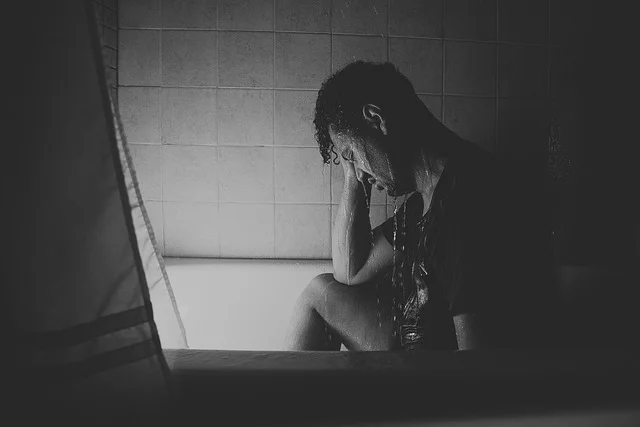
It can be challenging to know with certainty if someone has overdosed on Valium.
Here are some signs:
- Lips turning blue, or very pale
- Drowsiness
- Difficulties breathing
- Uncoordinated movements
- Double vision
If you’re unsure whether someone has overdosed on Valium, please call the emergency services immediately.
Valium overdose can lead to death.
Signs You Have A Valium/Diazepam Addiction

There are signs you can look out for which will clarify whether you have a Valium addiction.
These include:
- Not being able to stop using Valium even when you try to
- Taking increasing amounts to feel an effect, or to feel “normal”
- Hiding use from others
- Lying or manipulating to get valium
- Taking legal diazepam prescriptions illegally
- Losing interest in usual activities
- Issues in relationships due to Valium use
- Problems at work, school, or college due to valium use
Benefits Of Rehab For Valium/Diazepam Addiction

Valium causes very severe addictions with serious withdrawal symptoms.
Trying to come off Valium on your own without professional support is actually dangerous.
A 28 day stay at a rehab facility gives you enough time to detox under the guidance of a doctor, as well as benefit from therapeutic treatments.
With addiction to benzodiazepines, a longer length of stay is sometimes required due to how it impacts the body and how long it can take for withdrawal symptoms to ease.
A private clinic will provide 24 hour support, meaning that whenever you experience distressing symptoms, you’ll have a member of staff to effectively support you through it.
Staff are understanding, many having experienced addiction themselves, and will remain entirely professional.
Private clinics offered tailored programmes of support so your treatments suit your needs.
Rehab Treatment For Valium Addiction
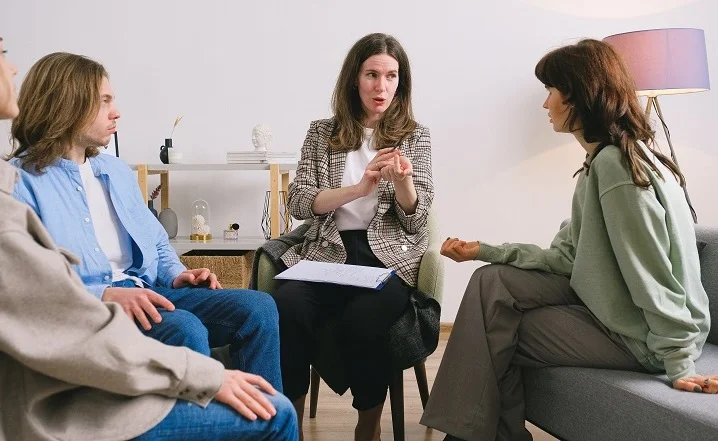
Valium is a long-acting drug, meaning you feel its effects for many hours.
It takes a while to taper off and can take weeks, and in severe cases months, for withdrawal symptoms to come to an end.
Rehab for Valium means you need a total approach to recovery.
You’ll need both a physical detox as well as psychological and holistic therapies to support you to heal.
Medically Assisted Valium Detox
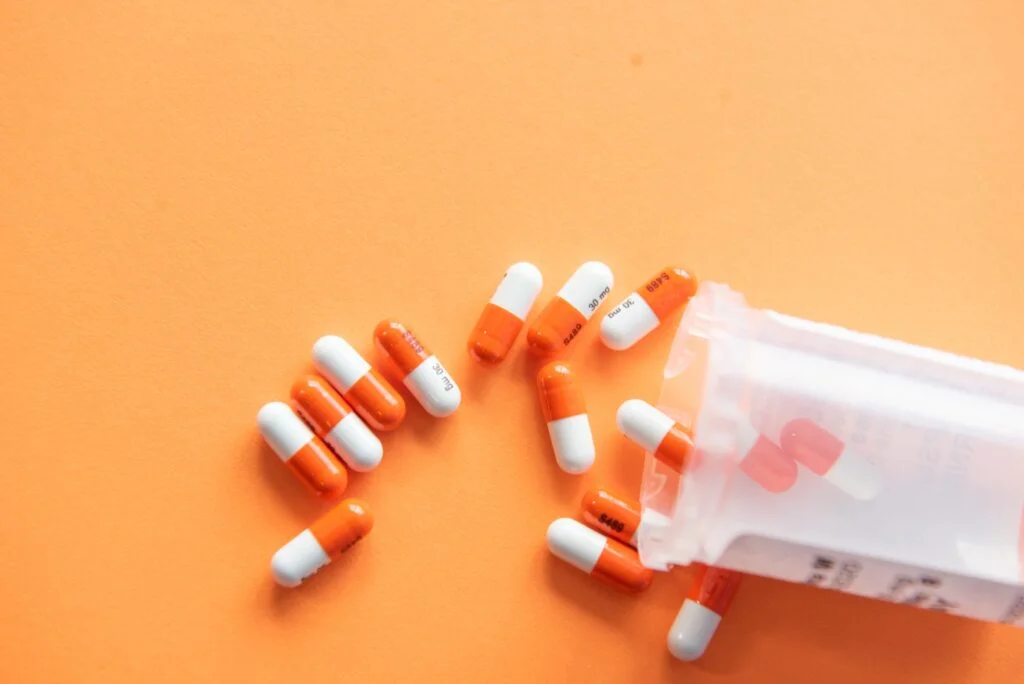
As mentioned, Valium causes a physical dependency.
It changes the way the brain functions, and as such withdrawal can be dangerous.
There are three stages to Valium withdrawal:
- The early stage, usually in the first 24-72 hours. Typically symptoms consist of anxiety and restlessness. It can feel very intense.
- The acute stage, around 2 weeks and can go on into week 4. Withdrawal symptoms are physical and include sickness, sweating, and muscle spasms.
- The late stage of withdrawal. This is more likely where people haven’t received treatment or for people who have had severe addictions. Withdrawal symptoms can go on for months.
This is why it’s so important to have a clinically overseen detox from Valium.
At a private clinic, you’re likely to be prescribed some of the following medications to help taper you off the Valium and to manage uncomfortable symptoms:
- An anti-convulsant
- An anti-anxiety
- An anti-depressant
- Another benzodiazepine, designed to support you through a tapered withdrawal from Valium
Psychological Therapies To Treat Valium Addiction

It’s really important for those in recovery who want to remain abstinent long-term to learn more about themselves and their addiction.
This means understanding what factors caused the addiction and what keeps it going.
Therapists at rehab use Cognitive Behavioural Therapy to support you to regain control of your thoughts, allowing you to change them.
This is the key to changing addictive behaviours.
As well as this, Dialectical Behavioural Therapy is on offer to those who need support around emotional responses.
Alternative Therapies To Treat Valium Addiction

When you’re being treated at rehab, there are many sessions where you do a lot of emotional and “thinking” work.
This, of course, can be quite exhausting and also bring some surprising revelations.
To support you to rejuvenate and to give you a space of relaxation, there are holistic activities on offer as well.
These include:
- Art therapy (i.e. painting)
- Music therapy (i.e. a drumming circle)
- Yoga
- Reiki
- Mindfulness
- Equine therapy (with horses)
Many people find these sessions bring a place of inner solitude that might have been a distant idea before entering rehab.
Group Work At Rehab
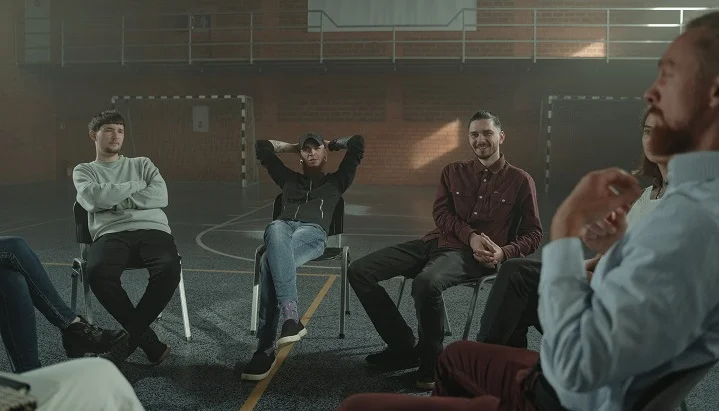
Group therapy sessions are an important part of rehabilitation support at private clinics.
This might be through therapeutic or more physical activities.
However, the 12 Step approach is very popular throughout the majority of private clinics in the UK.
The 12 Steps offer a solid guide for you to follow to admit you have an addiction and to see clearly how you can overcome it.
There is work regarding self-compassion, how to socially connect with others to bring value to life, and how to help others.
Life After Rehab

Perhaps you’re wondering what happens after rehab.
Many people worry that they will relapse.
It’s important to be realistic.
During rehab, you’ll work with staff to develop an aftercare programme which will include a relapse prevention plan.
When you speak with the staff, it’s important to talk honestly about your triggers and what techniques you learn at rehab that are useful.
There will also be a focus on changes you can make on leaving rehab to support a sober lifestyle.
Long-term sobriety is possible, but you have to be committed.
For many, this might include developing new hobbies and spending time looking after yourself.
It’s important to think of life in a holistic sense, meaning you think about diet, exercise, and sleep, as well as family, friends, work and spirituality (whatever that means to you).
It’s likely that you’ll have ongoing support from recovery groups or might have ongoing counselling.
Outpatient Services Available For Valium Addiction

There are two types of outpatient services you can access for treatment for Valium addiction in the UK.
Those through local NHS drug and alcohol services and those through private rehab clinics.
NHS services serve the entire community, meaning there are hundreds of people who access the support.
Some users will be young and accessing the service for harm reduction advice, whilst others may have had addictions for years and use the service for a needle exchange.
There is limited one-to-one support and weekly sessions, such as SMART groups.
Private clinics offer outpatient services to those who are seeking a tailored approach to their treatment.
Usually, it’s advisable to stay at the clinic as an inpatient and then move on to an outpatient programme.
However, some people have dependents and work responsibilities, so outpatient support is more suitable.
An outpatient programme at a private clinic might include psychotherapy, 12 Step groups and holistic activities.
How To Find A Rehab Clinic To Help You Quit Valium

Valium, or diazepam, is a highly addictive substance.
It’s available through GPs, but new psychoactive substance types of Valium are also available illegally.
Although people might use it to help with anxiety or sleep issues, if used for longer than 4-6 weeks, it can cause severe addiction and dependency.
Withdrawal symptoms are so serious that the safest way to detox is under the guidance of a doctor.
Entering a private rehab clinic offers the best way to come off diazepam safely and start recovery.
If you think you might have a Valium or diazepam addiction, call Rehab Recovery for advice.
Our friendly team can ascertain whether your use is problematic or addictive and what treatment options there are to suit your needs.


